STUDENT POLICIES AND ETIQUETTE
Your Weekly Lesson – Purpose & Structure
Each lesson is designed to provide structured guidance, feedback, and tailored instruction to accelerate your musical growth. Lessons may include:
1. Your Weekly Lesson – Purpose & Structure
Each lesson is designed to provide structured guidance, inspiration, something new, feedback, and tailored instruction to accelerate your piano-playing growth. Lessons may include:
Weekly themes
Monthly themes and goals
Warm-ups and technical exercises (scales, arpeggios)
Sight-reading and music theory
Repertoire study and memorization
Improvisation and composition (as appropriate)
Practice guides are personalized to each student’s level and progress. Our goal is to cultivate creativity, musical proficiency, cognitive development, and a lifelong love of music.
2. Attendance Guidelines:
Your weekly lesson slot is reserved exclusively for you, whether you attend or not.
Notify by email at least 48 hours in advance if you cannot attend.
Missed lessons are not rescheduled, and the instructional time is forfeited. Continue daily practice using the most recent lesson notes if a class is missed.
Bring all your music books/binders and curriculum to each weekly class. It is good to have a tote bag to keep them organized in so that you don’t forget them for class.
At Con Brio Piano Studio, we cultivate an environment of focus, respect, and excellence—values essential to both musical growth and personal development. Families and students are expected to uphold the highest standards of decorum during lessons and within the studio space.
Students and accompanying family members should respect the dedicated learning space, fostering an atmosphere conducive to cognitive engagement, creativity, and deep skill acquisition.
3. Developing as a Pianist – Practice, Etiquette & Expectations
Devoted engagement and practice are essential for musical growth, enjoyment, and participation.
As a Con Brio student, you are committing to:
Complete practice objectives and assignments.
Engage in a daily practice routine, integrating your piano studies into your schedule as a prioritized activity.
Maintain access to your Online Piano Portal (Google Classroom) for lesson notes, guides, and resources.
Printing weekly objectives and/or developing a system that works for your utmost enjoyment and progress.
Keep a personal notebook to record key instruction points and insights.
Track practice time and practice a minimum of 5 days per week.
Use a 3-ring binder to organize sheet music, handouts, and practice notes.
Approximate Recommended Practice Times:
Beginners: 15–20 minutes daily
Intermediate: 30–45 minutes daily
Advanced: 1–2 hours daily
4. Home Practice Environment
A well-designed practice space is critical for focus, skill development, and musical growth. Students achieve the best results when practicing in a quiet, distraction-free environment.
Guidelines for an Effective Home Setup:
The piano should be placed in a low-traffic area, away from TVs, computers, or other common household activity.
Minimize background noise and visual distractions during practice sessions.
Ensure the student has a dedicated chair and a small table or surface for music, notes, or practice materials
If a student’s progress indicates that their home practice environment is suboptimal, guidance will be provided to improve conditions, helping to maximize the effectiveness of independent practice.
